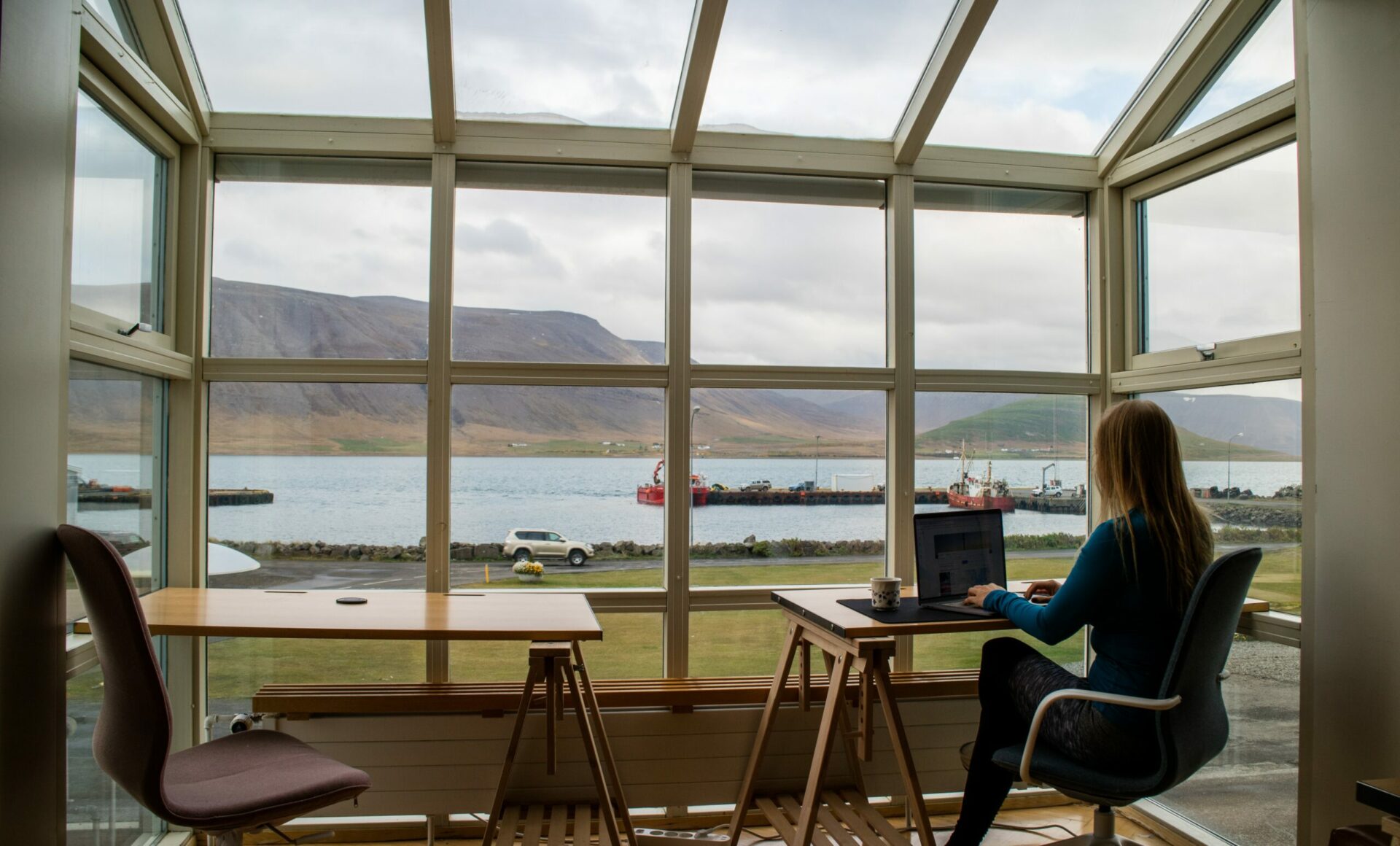Join our network of over 200+ hotels growing their direct revenue online. Get Started
Join our partner networks of over 200+ hotels. Get Started
View what our clients say about us. Testimonials
As hotel owners navigate their post-pandemic hotel businesses, consumer trends are shifting, and so are the demands of the hospitality industry.
Hotels must work hard to adapt to the changing landscape, and it’s essential to stay ahead of the curve to keep up with the latest consumer trends. With new technologies and interests coming to the fore so too are new ways of attracting and retaining customers.
In this article, we’ll explore the changing hotel trends of 2023 in the post-COVID world and provide expert tips on how hotel owners can stay ahead of the hotel industry.

It’s not hard to see that the hospitality sector has seen a massive return to its former glory of the pre-pandemic. While many hotels were struggling with hotel occupancy issues before the pandemic (let alone during) they’re now seeing some of their highest year-over-year increases in occupancy.
Hotel operators don’t have to worry so much about filling hotel rooms, but these hospitality trends can’t last forever, and the hotels that can leverage these good times will be better positioned to compete this year and in the years ahead.

As remote work becomes more popular and travelers crave one-of-a-kind authentic experiences, cookie-cutter traditional hotels may soon become a thing of the past.
But don’t fret – if you think your hotel may fall under this category there’s no need for it to fade into obscurity. Instead, there’s a prime chance for savvy hoteliers to tap into these trends by collaborating with your local community to provide unique personalized experiences for guests.
For example, hotels that cater to remote workers and business travelers can offer co-working spaces, provide optional rental of mobile devices, and even dish out hotel concessions for long-term stays.
So let’s take a closer look at some of these trends and how your hotel can get in on the action.

In today’s world, hotel guests care more than ever about access to smart technology when traveling. They expect to be able to use their devices seamlessly and efficiently, without having to go through the hassle of setting up their own networks or struggling with slow or spotty Wi-Fi connections.
To keep up with these expectations, hotels need to offer a variety of technology options for their guests. This includes high-speed Wi-Fi, smart TVs, voice-activated assistants like Amazon Alexa or Google Home, and mobile apps that allow guests to control room settings, request room service, and make reservations all from their smartphones.
Hospitality companies can provide guests with cutting-edge features such as virtual reality tours of their rooms and facilities, portable Wi-Fi, digital keys that allow for seamless check-in and check-out, and even artificial intelligence-powered chatbots that can assist with booking and other inquiries.
By offering a comprehensive suite of smart technology options, hotels can provide a truly memorable and comfortable guest experience that is in line with their expectations.

Authentic local experiences have become increasingly important to hotel guests, with travelers looking for unique and memorable experiences that they can’t find anywhere else. Hotels that provide these experiences are more likely to earn positive reviews and repeat business if they can think of creative ways to improve their guest experience.
Hotels can offer a range of local experiences, from cultural tours and culinary classes to outdoor adventures and community service projects. We’ve seen firsthand how hotels in Thailand have excelled at offering guests these authentic local experiences.
Many hotels in northern Thailand offer guests a glamorous camping experience in the Thai countryside or a private Muay Thai lesson with a local champion fighter. The Four Seasons Tented Camp in Chiang Rai offers guests an elephant camp guest experience with a resident mahout.
Other Thai hotels have focused on culinary experiences, offering cooking classes that take guests to the local community market to select locally sourced food and teach them how to prepare traditional Thai dishes.
By providing these kinds of unique and authentic experiences, hotels in Thailand are able to differentiate themselves from the competition and offer guests something truly special within the hospitality space.

Wellness tourism has become a rapidly growing sector of the travel industry, with more and more people looking for ways to prioritize their health and well-being while on vacation.
This is nothing new, as the wellness tourism industry was a major force pre-pandemic. That force has grown exponentially in recent years though.
This trend has led to the emergence of specialized wellness retreats, spas, and other health-focused destinations around the world. Hotels that are able to cater to this growing demand stand to benefit greatly in 2023, as wellness tourists spend more on their travels and are willing to pay a premium for experiences that prioritize their physical and mental health.
To take advantage of this trend, hotels can offer a range of wellness-focused amenities and activities, such as yoga classes, meditation sessions, healthy dining options, and spa services. Many hotels are also incorporating natural and sustainable elements into their design and operations, which further aligns with the values of wellness tourism. In Thailand, hotels such as the COMO Shambhala Estate in Chang Mai and the Six Senses Yao Noi in Phang Nga Bay have become renowned for their wellness programs, which offer everything from yoga to holistic therapies to organic cuisine. By embracing wellness tourism and prioritizing guest health and well-being, hotels can attract a new, growing segment of the travel market and set themselves apart from competitors.

Although there has been a pullback from working remotely in recent months, remote work remains common in the industry and is likely to grow.
The trend of “workcations” is on the rise, with remote workers seeking out locations that offer a relaxing vacation atmosphere, opportunity for cost savings, and the necessary infrastructure to remain productive.
Thailand has been at the forefront as a popular destination for this growing market, and hotels have taken notice.
Some of the ways that hotels in Thailand cater to this class of travelers include offering co-working spaces with high-speed internet, providing tech amenities such as mobile device rental and video conferencing facilities, and offering packages specifically for those on a business trip.
Hotels can promote their locations as ideal for work-life balance, offering outdoor activities such as yoga, meditation, and other wellness programs to help guests maintain a healthy lifestyle while they work.
The hotel industry should take notice of how Thailand is recognizing the needs of remote workers and adapting to meet their demands in creative ways to stay ahead of the curve.

In recent years, hotel guests have become increasingly concerned about the environmental impact of their travel, seeking out more sustainable accommodations, and this trend is likely to continue as people become more aware of the need for eco-friendly practices in all aspects of life.
Hotels that prioritize sustainability and take steps to reduce their environmental footprint are better positioned to attract and retain guests, as well as differentiate themselves from competitors.
Sustainability practices in hotels can include using energy-efficient lighting and appliances, reducing waste through recycling and composting, and locally sourcing materials.
Additionally, hotels can offer eco-friendly amenities like refillable toiletry dispensers and focus on reducing water usage in each hotel room. By implementing these practices and advertising them to potential guests, hotels can tap into a growing market of environmentally-conscious travelers. An added bonus to a hotel business is also reducing costs for utilities and environmental sustainability.
Implementing sustainable practices not only benefits the environment and reduces costs, but it can also increase guest loyalty.
By reducing waste, conserving energy and water, and sourcing locally, hotels can appeal to guests who value sustainability and attract a growing segment of environmentally conscious travelers. Adapting to these desires and advertising sustainability practices is essential for hotels to stand out in a competitive market and gain a loyal following of environmentally conscious guests.
As the hotel industry moves into 2023, it’s more important than ever for hotels to adapt to the changing desires of their guests.
The new concept of a hotel sees guests looking for unique experiences and short-term living arrangements rather than just a place to sleep.
Smart hotel rooms offer guests the convenience of technology, while authentic local experiences give them a taste of the community they are visiting.
The wellness tourism industry is growing, and guests want to stay in places that add to their mental well-being.
Remote workers have become a significant category of travelers, and hotels can cater to their needs by providing longer-term stays and co-working spaces.
Finally, sustainability practices are increasingly important to guests, who want to reduce their environmental footprint while traveling.
By adapting to these trends in the hospitality industry and effectively advertising them, hotels can attract and retain guests, save money, and stay competitive in the market.
We're here to help our hotel partners take back control of their sales channels - we’re
happy to discuss your requirements and explore how we can increase your revenue.